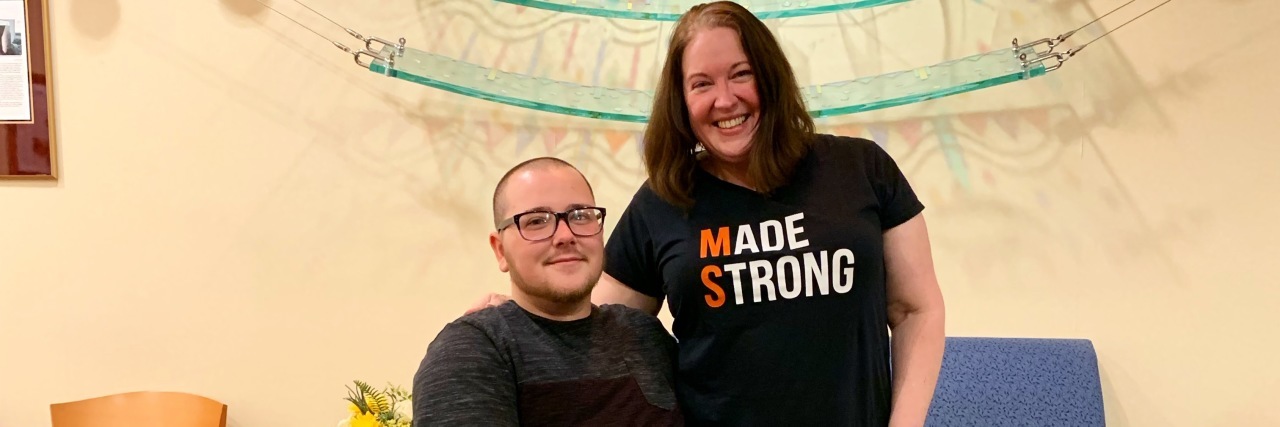My mom was diagnosed with multiple sclerosis (MS) roughly a year after I was born. She didn’t necessarily hide it, but I didn’t know about it until I was 5 or 6. To be honest, we don’t remember how the topic came up, but she said I may have asked why she needed to get shots.
One action that stuck with me was the moment my mom handed me a pamphlet about multiple sclerosis she printed off the MS Society website. Since I have always preferred to read and research various subjects, having the physical material to reference made it easier for me to process the conversation. What followed was an open discussion where I could ask her questions and she would answer to the best of her ability. Thankfully, my mom was always very encouraging when it came to education and medical topics were no different. She talked with me about MS in a way that was open and honest, which helped me understand what her life was like.
Because of her honesty, I knew why my mom was tired or why she couldn’t keep up with me at times. I don’t doubt that as a kid I tried to push her past her limits, but I was knowledgeable about the “why” behind her “no.”
I believe letting your kids know about your multiple sclerosis will help strengthen your relationship with your child. You depend on each other as a family, and they should know what MS is and how it impacts your life. It is also useful information to know when it comes to medical family history. In addition to understanding what you go through, it will help improve their views of others with chronic illnesses and disabilities and help foster greater accessibility and understanding in the future.
I’ve seen my mom have good days and I’ve witnessed her struggle to make it through the bad ones. I can honestly say the way I’ve handled my own chronic illnesses is a direct result of seeing how my mom went on living her life with multiple sclerosis.
I sat down with Kelly, my awesome mom, and asked her to share her thoughts. Kelly explained it’s important to tell your kids “so they can grasp the concept of being able to think about others.” After all, many important life lessons start at home. Having a child understand illness supports the development of empathy and normalizes those with chronic conditions.
She went on to emphasize the importance of kids seeing a role model who can overcome challenges. “Sometimes life is all about how you handle ‘plan B’ and I think that’s a valuable lesson for kids to see.”
I want all the parents out there to know it doesn’t make you a bad parent if you struggle or have days that are not so great. Allowing your kids to see this and how you overcome or cope with your hardships can help set them up for success in the future.
“They can see that maybe their parents have, in my case, occasional physical weakness, but strengths in character and the implementation of coping skills are probably the most important tools they can learn to use from you. This is life and sometimes things don’t go as you expect, but as a parent you can’t throw yourself down on the floor to kick and scream about it. You deal with it and try to make the best of it.”
Yes, my mom has some rough days every now and then. She gives herself a moment to have a cry and then it’s time to get back up and try again. Watching her pick herself up over and over again, while also caring for her emotional health, provided me with a strong and healthy point of reference to model my own behaviors.
The MS Society has some amazing links, materials, discussions and groups. The home page has a link to MS Navigators who can help connect you to local resources as well.
Please consider opening up to your child about your MS.
With love,
A mother and child who are MS Strong

